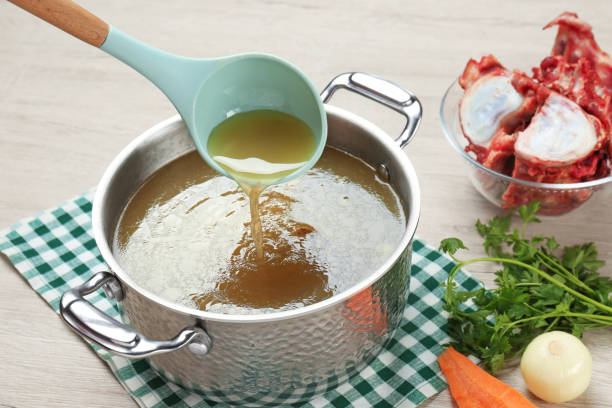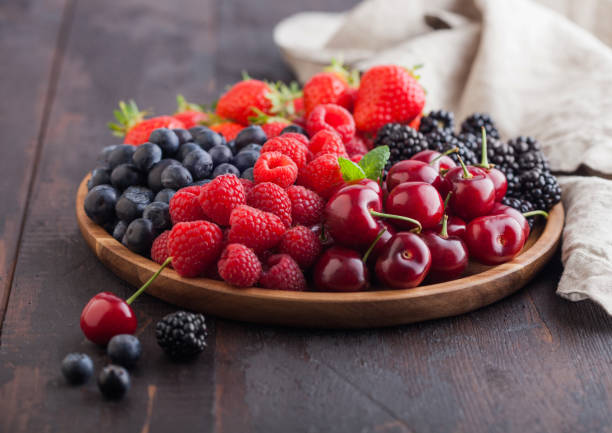Collagen is the protein that keeps your skin plump, your hair shiny, and your joints flexible. Unfortunately, as we age, our bodies produce less collagen, leading to wrinkles, sagging skin, and joint discomfort.
The good part? You can boost collagen production naturally without relying on expensive treatments or supplements.
Here are five simple, effective ways to naturally enhance collagen in less than a month, shared by a trusted nutritionist.
Table of Contents
Load Up on Collagen-Boosting Foods
What you eat can have a significant impact on your collagen levels. Certain foods are rich in nutrients that stimulate collagen production:
- Bone Broth: Packed with collagen and amino acids, bone broth is one of the best ways to replenish your collagen stores.

- Citrus Fruits: Oranges, lemons, and grapefruits are rich in Vitamin C, which helps the body synthesize collagen.
- Leafy Greens: Spinach, kale, and other greens contain chlorophyll, which can boost collagen production.
- Nuts and Seeds: Almonds and sunflower seeds provide zinc and copper, essential for collagen synthesis.
Adding these foods to your diet can make a noticeable difference in your skin and overall health in just a few weeks.
Hydrate from Within
Your skin needs water to stay elastic and hydrated. Drinking enough water daily supports collagen’s role in maintaining skin firmness.
Aim for at least 8 glasses of water a day, and consider adding foods with high water content like cucumbers, watermelon, and celery. Staying hydrated ensures that your body has the resources it needs to repair and produce collagen efficiently.
Incorporate Antioxidants into Your Routine
Antioxidants protect your skin from damage caused by free radicals, which break down collagen. They also support the body’s natural ability to produce collagen.
- Berries: Blueberries, strawberries, and blackberries are rich in antioxidants.
- Green Tea: A daily cup of green tea provides polyphenols, powerful antioxidants that promote collagen health.
- Vitamin E-Rich Foods: Avocados and almonds are excellent sources of Vitamin E, which supports skin repair and collagen integrity.
Antioxidants not only promote collagen production but also keep your skin looking youthful and radiant.

Get Enough Sleep
While it might not seem directly related, getting enough sleep is essential for collagen production. Your body repairs itself and produces collagen during deep sleep.
Lack of sleep leads to higher cortisol levels, a stress hormone that breaks down collagen.
To improve your sleep quality:
- Stick to a regular sleep schedule.
- Create a calming bedtime routine, like reading or meditating.
- Avoid caffeine and heavy meals close to bedtime.
Seven to eight hours of quality sleep each night can do wonders for your skin’s elasticity and overall health.
Protect Your Skin from the Sun
UV rays are one of the biggest culprits behind collagen breakdown. While a little sunshine is good for Vitamin D production, excessive exposure damages collagen fibers and speeds up aging.
Here’s how to protect your skin:
- Wear sunscreen daily, even on cloudy days.
- Use protective clothing like hats and sunglasses.
- Seek shade during peak sun hours (10 a.m. to 4 p.m.).
By reducing UV damage, you help preserve existing collagen while allowing your body to produce more naturally.
Why Natural Collagen Boosting Works
Unlike creams and supplements that promise overnight results, natural methods provide sustainable benefits.
They not only enhance your collagen levels but also improve your overall health. Plus, these practices are affordable and easy to incorporate into your daily routine.
Wrapping It Up
Boosting collagen naturally doesn’t have to be complicated or expensive.
By making small, consistent changes to your diet, hydration, sleep, and skincare routine, you can see noticeable improvements in less than a month.
Photo | pexels




















